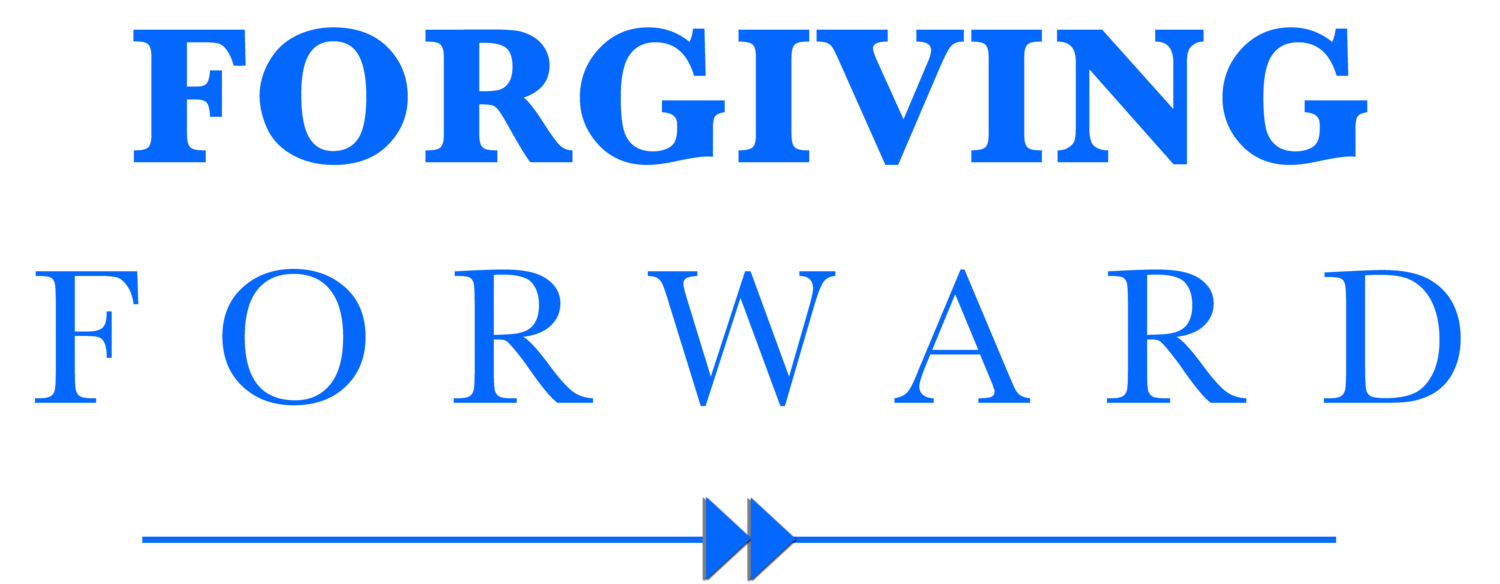SPECIFICALLY…
Handling Issues of the Heart
The message of Gospel-centric forgiveness teaches us that we don’t forgive people, we forgive wounds and that freedom will be experienced when we forgive the specific wounds incurred against us. Jesus says in Matthew 18 that we should forgive “from our hearts.” To say, “I forgive my uncle,” period, is not forgiving from our hearts but from our minds, and the wounds in the heart are left behind to fester. Jesus, our supreme example, said, “Father, forgive them, for they know not what they DO.” So, to forgive from our hearts will sound like, “I choose to forgive my uncle from my heart FOR saying this, doing that, not doing this, making me feel,” etc. We must be specific. When we identify the wounds, specifically, by speaking them aloud and laying them at the cross, we will experience freedom.
However, that does not mean that we are reconciled to the offending party.
Forgiveness and reconciliation are NOT the same thing. For reconciliation to take place, the wounded party needs to forgive, and the wounding party needs to repent. Until both parties take responsibility for their part, there is no reconciliation. We are frequently asked, “I have forgiven them, but now what? How do I relate to them if they’re not repentant? What does repentance look like? Are we responsible to be involved in their repenting?”
For many people, repentance is difficult. It’s hard to admit when we have done something wrong that hurt someone. Yet, when God convicts us, He will always shine a light on something specific we have done that does not line up with His ways. We can know it is God who is convicting us when the action or attitude He reveals to us is specific and is not a general feeling of condemnation, which is the enemy's territory. Repentance is a gift from God that will bring a lift to our spirits when we agree with Him and confess our sin to Him. When we realize that our sin wounded or impacted someone else, the next step of our repentance is to specifically confess to those we have wronged. But only God can shine that light, both for us or the ones who wounded us. We cannot. That is the Holy Spirit’s job. (John 16:8-9) We are called to forgive, and trust the Holy Spirit to deal with the other party’s repentance.
So what DO we do after we have forgiven someone?
First, the most important thing we can do is bless them and pray for God to bring the person who has wounded us to repentance. It is not good for a person to continue living in their sin, and our hearts need to see that repentance for them is a gift, for it too, brings freedom. It is for their benefit that they repent. When we truly forgive someone, our hearts will desire God’s best for them.
Second, if the one who has wounded you says something like, “I’m sorry” or “I hope you can forgive me,” without being specific, you can’t be sure that they are truly repentant. They may actually mean, “I’m sorry I got caught,” or “I don’t want you to be upset with me,” or “Let’s just move on…it’s no big deal,” but have not owned what they did. We are not to judge their hearts, their motives, or their thoughts, but asking for clarity can encourage repentance from their heart and for their benefit. Ask them, “What do you want me to forgive you for, specifically?”* You see, repentance is not truly repentance unless it is specific. When we ask them “for what,” we are actually giving them an opportunity to receive freedom through repentance. Just like one must forgive from their heart, we must also repent from our heart—both are specific, and both bring freedom!
*Note: This is not a place for you to shame their behavior, which is a form of vengeance. Remember, you have already forgiven them for what they did. This is an opportunity for you to open the door to their restoration, leading them to life and joy through the grace of God that He has also extended to you.
Conviction is Specific.
Forgiveness is Specific.
Repentance is Specific.
Freedom is promised.



